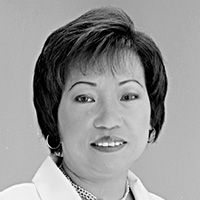Hands-on dads rear confident, more behaved kids

A father’s role does not end in his offspring’s childhood or adolescence. This role lasts a lifetime. The father’s influence will help mold the child into the person he will become.
The father, like the mother, is a pillar of support in child development, particularly in his cognitive, physical and psychological well-being. His role helps the child develop autonomy and independence by encouraging the child to learn to take responsibility and to explore and discover his surrounding world.
Believe it or not, the father’s relational bond with his child begins while the latter is still in the womb of his mother. The father at this time assumes a supportive role for his wife, who will be going through various changes.
With the birth of the child, the actual face-to-face chance of the father to connect with the infant begins. This so called “attachment relationship” between the father and the baby is progressively being nourished by little acts or simple tasks that the father actively participates in, like by carrying the newborn in his arms while humming a lullaby, by sleeping beside him or her, by holding the feeding bottle for the baby, by helping bathe the baby or by changing the diaper. So, every time the father participates in caring for the baby, he will associate the voice of the father or even his smell with awesome moments of feeling satisfied, safe and comfortable.
During this early stage of infancy, the mom should allow the dad to participate in nurturing the newborn. This is the way that the infant will learn to recognize the father as another figure of attachment aside from the mother. The baby will be able to feel the dad as somebody trustworthy. This feeling will aid the infant in building a strong foundation for self-esteem.
Provision of a safe space is one of the most essential functions of the father. He is the figure of support and security for the growing child. The father-child relationship helps in the child’s personality development and confidence building, which are necessary factors in coping with the world outside the nuclear family.
The constant and active participation of the father will spell the difference in the child’s psychosocial development. This active paternal involvement will assist the child to grow in a balanced way as a human being, since the father also serves as a model for right conduct and moral standards. The father guides the child to establish and set limits for normal social behavior. The always active and present father figure is the key person in transmitting the correct values and attitudes of family life as he continues to provide support along with the mother.
Being an actively involved father has a great impact in child development. He can help increase the child’s emotional intelligence and problem solving capabilities. It has been shown in studies that fathers involved in caring for an infant increases the child’s curiosity. Such children score higher in math and verbal assessments and are said to be less likely to drop out from school or commit juvenile crimes.
Emotional support given by the father will boost the child’s confidence. Such kids will show greater tolerance for stress or frustration. They can adjust better in new situations. When children have fathers who provide positive role models, they tend to have less behavioral problems and less impulse control issues. These children develop longer attention span and a higher level of sociability. They develop generosity and compassion and increased empathy for the needs of others. Actively involved fathers share their view of life to their children and hand down to them valuable life skills.
The daughter will emulate the way she perceives the father relates with others inside and outside the home. For the daughter, her dad is the first man she admires. The son, on the other hand, will model after the father’s character or personality. The son looks up to his dad as his idol.
With an absentee father, the young boy may look up to other male figures in the extended family to set the house rules on how one is to behave and cope with the world around him.
The distant, absent or authoritarian father will have an adverse impact on the child’s development and as the child grows into adolescence, may develop gender identity confusion, suffer a lot of insecurities, loneliness and even clinical depression, substance experimentation and abuse and academic failure.
We certainly have a lot to thank our fathers for what we have become today!
Happy Father’s Day!
* * *
(For questions on love, looks and relationships, please e-mail me at nina.halilijao@gmail.com. Belated happy birthday to my daughter Berna. Happy 50th wedding anniversary to Orlando and Mila Ong.)















